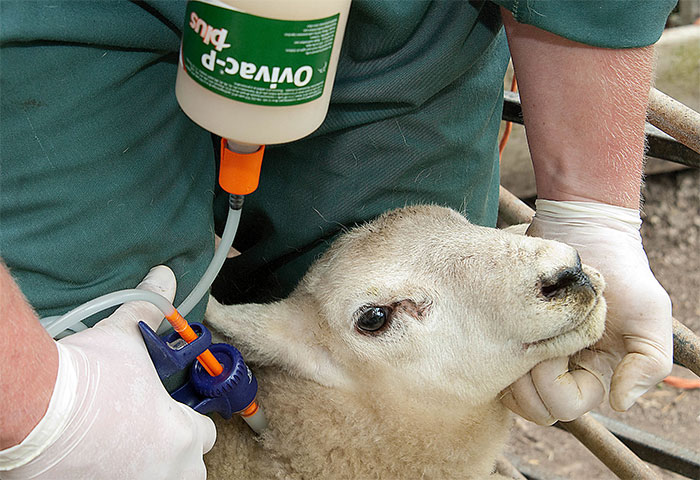
With lamb prices climbing on weaker sterling during March and an early Easter, sheep producers are being urged to realise full value for the 2013 crop by making sure valuable finishing lambs on the farm are vaccinated against pasteurellosis and the main clostridial diseases.
"As the industry struggles to cope with the coldest March since 1962 and the impact of the Schmallenberg virus, losing lambs to easily preventable diseases this summer really is throwing money away," said MSD Animal Health livestock veterinary adviser Drew McGurren.
Pneumonia continues to be a significant cause of death in unvaccinated lambs. The disease can have a variety of causes, including the stress of adverse weather conditions, but many outbreaks are caused by pasteurellosis.
"Pasteurella are a group of bacteria, with Mannheimia haemolytica and Bibersteinia trehalosi being the most important types to cause disease in sheep. Flock problems usually start with sudden deaths, often in very young lambs. But occurrence can be sporadic in individual sheep."
He warned that the colostrum lambs receive from the ewe shortly after birth only gives them protection for a limited time against pasteurellosis and the clostridial diseases like pulpy kidney, braxy, blackleg and tetanus.
"It’s true that if ewes are vaccinated properly with Heptavac-P Plus in the run up to lambing then the lambs will also gain immunity.
"But this so called passive immunity only lasts for so long. Lambs that receive a good intake of colostrum only have antibodies against pasteurella for up to four weeks and clostridia for up to 12 weeks.
"This means that some early season lambs may already be unprotected and if the cold spring continues are at real risk from these prevalent disease threats unless they are vaccinated themselves."
